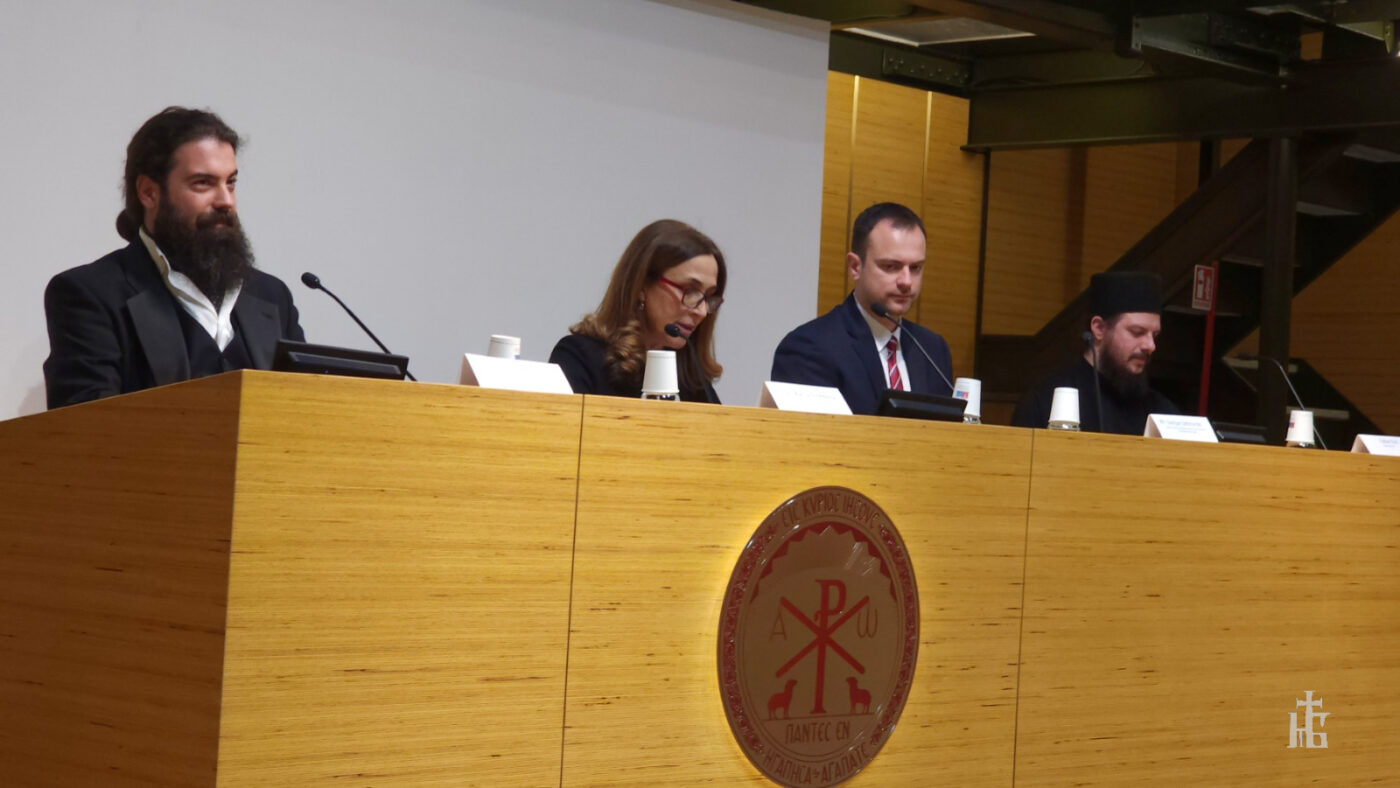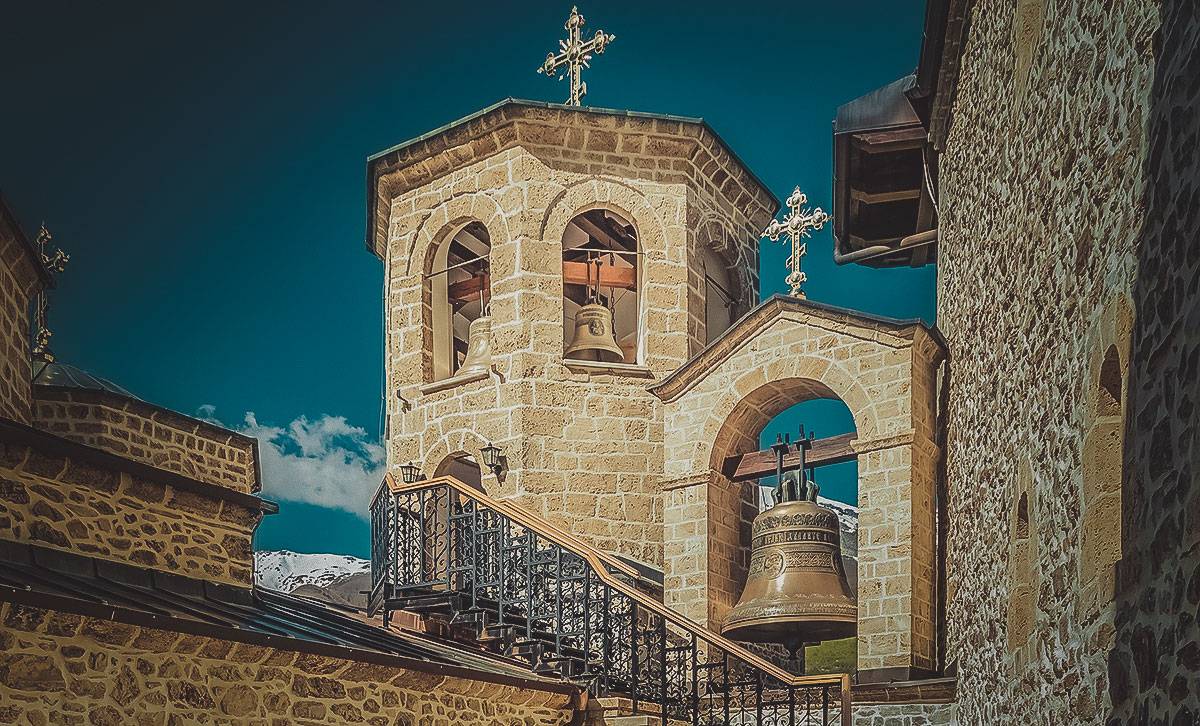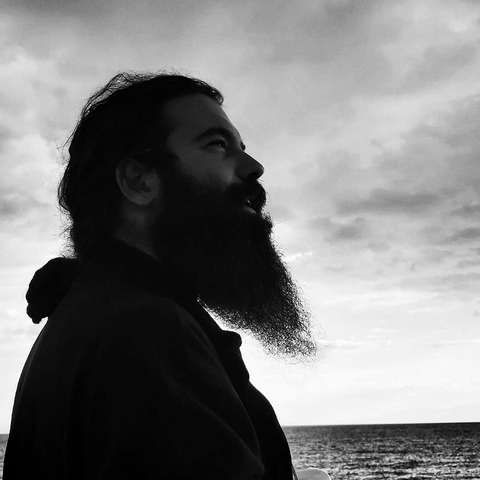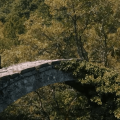Ladies and gentlemen, esteemed ambassadors, and members of the Diplomatic Corps at the Holy See, dear friends,
Good evening to all, and thank you immensely for your presence. It is both an honor and a privilege for me and my colleagues to present to you this evening the documentary film about the Bigorski Monastery, “1000 Years Witness of the Light,” directed by Iko Karov, in this beautiful library of the Pontifical Oriental Institute in Rome.
I extend a warm greeting to the Director of the Commission for Relations with Religious Communities, Mr. Darijan Sotirovski, and to the Rector of the Papal Oriental Institute, Monsignor David Nazar, who have granted us the privilege of being with us tonight!

I also thank everyone who contributed to the screening of the documentary film about the Bigorski Monastery, a significant monument of Macedonian culture, representing the soul and engine of spirituality in our country.
Its history is so long and intense, so ingrained in our existence, that it almost serves as a cultural encyclopedia of our country and the spirituality of the Macedonian people. All thanks to the initiatives and determination of the monks and nuns who contributed to its survival and rebirth through the centuries. Here, I greet Father Kiril, Hieromonk of the Bigorski Monastery, and Sister Efimija from the Rajčica Monastery.

I also greet and introduce to you the director, Iko Karov, to whom I congratulate for directing the film, which with great professionalism and apparent ease, reveals our immense cultural heritage, spirituality, and creative thought.
Congratulations also to the musical feats of the composer Goran Trajkovski, who masterfully accompanies the images, and to the film editor Branko Blaževski.
I would like to briefly remind you that the history of cinematography is part of the history of our country. The first camera in the Balkans was brought by the Manaki brothers to Bitola at the beginning of the last century. Since then, despite often modest budgets, Macedonian cinema has managed to revive, tell, and express the feelings and values of our people. In delicate periods of our history, it has managed to strengthen civic sense and raise significant societal questions. But above all, it has succeeded in provoking great emotions.
About a thousand years ago, during the time when Basil II (976 – 1025) ruled the great Roman Empire, and Samuel (976 – 1014) ruled the territory of today’s North Macedonia, in the beautiful and mystical slopes of Bistra, lived a monk named John. This father, full of great kindness, wise and prudent, cared for the purity and serenity of the heart, always bearing in mind the words of the Lord: “Blessed are the pure in heart, for they shall see God” (Mt. 5:8).
It is told that once Father John saw a strong and wondrous light among the trees, which, like a pillar of fire, rose towards the sky. Upon approaching, he saw an icon with the image of Saint John the Baptist floating in the pure air. Overjoyed, John fell to his knees and thanked God. With great devotion, he took the icon and built a suitable temporary home for it, a small chapel, where he placed the icon and prayed and thanked Saint John the Baptist every day for the gift with which God had blessed him.
Thus began the thousand-year history of our monastery, which during its existence, survived many hardships. In addition to destruction and burning during the Ottoman Empire, and looting and damage by various groups of bandits from foreign lands, Saint John the Baptist did not allow his holy icon to be destroyed. The oblivion and devastation of the monastery continued during the communist period, with the cessation of religious functions and prayers. After several decades, without religious customs and monastic life, the sanctuary was left in quiet and gradual spiritual decay, reduced to the function of a mere museum of dead objects. Years had to pass before conditions for its resurrection were created.
Thus, finally, by the will of God and with the blessing of the competent bishop, in 1995, monastic life was revived in the Bigorski Monastery and since then, despite the world being radically changed, our monastery continues to flourish.
We are witnesses to the increasing speed at which socio-cultural changes unfold in the world. New techniques, languages, and tools impose new ways of expression and new ideas for communication, which leave us confused and sometimes disturbed. Yet, despite everything, the Christian roots and identity of the Macedonian people do not change, do not disappear. On the contrary, they become even more precious, remaining a precious pillar that gives us strength even when everything changes.
The pandemic has had a significant impact on many societal, cultural, and economic activities, and it was also a very tough blow to cinematography. However, culture is an irreplaceable engine for the development of the soul. Culture does not halt in the face of injustices and the horrors of war and natural disasters; it is always ready to console and unite us. It transcends borders, overcomes senseless barriers it does not acknowledge; culture is fundamental in recreating solidarity among peoples and in creating conditions for peace.
Thank you for your attention!






